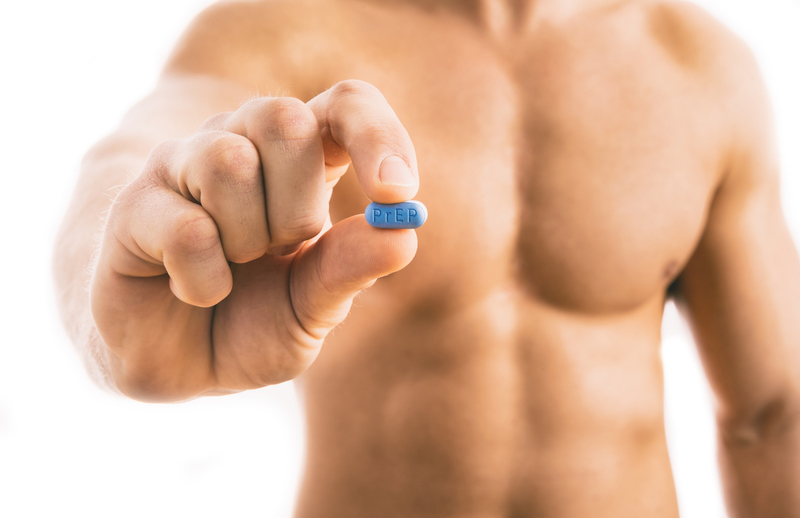There has been another report of a man on PrEP contracting HIV (Photo: © Marc Bruxelle | Dreamstime.com)
There have now been four established cases where someone who was taking their PrEP regularly has become HIV positive.
Some PrEP users are worried that it is not effective and others, who are opposed to PrEP for other reasons have leapt upon this as proof that PrEP doesn’t work.
These cases confirm that PrEP doesn’t provide 100% protection against HIV. However there are few who work in HIV prevention, care or research surprised by this. More usually, the surprise isn’t that PrEP can fail but that it’s as successful at preventing HIV as it is.
Most often efficacy of 86% is cited, as this was the impact seen in several major PrEP studies, including the UK-based PROUD study.
This is based on the effectiveness of PrEP as a strategy (i.e. people were given PrEP but the failures indicated that they did not take it as prescribed). In the PROUD study and other studies of PrEP effectiveness, there were no cases of HIV acquisition among people who took the drugs as directed.
Even when used consistently, condoms can fail
PrEP as a strategy should be compared to other safer-sex strategies. Some people who would say that their strategy is always to use condoms, actually don’t always use condoms. In fact 100% condom use is rare.
Even when condoms are used consistently, they can fail. Efficacy of 100% actual condom use may be as low as 70% (i.e. lower than PrEP use as a strategy).
Choosing partners on the basis of their presumed HIV status (sero-sorting) is also often ineffective as a strategy. Too often people do not know their own or their partner’s actual HIV status. Recently Public Health England bluntly stated in their ‘HIV in the UK’ report, “unprotected sex with partners believed to be of the same HIV status is unsafe.”
The men who have acquired HIV while on PrEP
The first two of the four cases of HIV infection when someone was adherent to PrEP were as a result of infection with a rare strain of HIV, which is resistant to the drugs used in PrEP. This strain, as with all other strains of the virus, will not be transmitted when someone who has it is undetectable on treatment.
The third case (the Amsterdam case) was not due to a rare strain but took an unusual route. The man concerned had an ‘unusually high number’ of sexual partners – averaging 50-70 a month – and several other sexual infections. Researchers have speculated he may have repeatedly exposed himself to HIV, which took a hold in his body after a slight dip in Truvada levels.
Unfortunately, due to a lack of adequate testing data we likely will never know with certainty the reason of the latest case of PrEP failure, recently reported at the Conference on Retroviruses and Opportunistic Infections (CROI).
PrEP is more effective than condoms or sero-sorting
Over time there will be more cases of PrEP failure. And we will learn from these cases and may be able to make PrEP more effective as a result of them. However, the fact remains that PrEP, when taken consistently remains one of the most effective means of preventing HIV. It is more effective than condom use or sero-sorting as a strategy.
This isn’t to suggest that it’s right for everyone. Some people don’t want to take drugs. Some people struggle to be adherent. PrEP offers no protection against other STIs.
However for others PrEP is going to be the most effective and most appropriate method of managing their HIV risk. The tiny number of cases of HIV when on PrEP, in the context of the number using PrEP (77k in the US alone), are testament to that.
It’s vital to acknowledge that PrEP, just like other safer sex strategies isn’t 100% effective. But it is also vital to not let isolated cases obscure how effective it is. PrEP has played a significant role in bringing down new HIV infections in London, Sydney, New York, San Francisco and other cities around the world.
‘No sexual safety strategy is 100% effective’
No sexual safety strategy is 100% effective. If you do not have any sex with anybody you won’t acquire HIV sexually – but for most people this is not an acceptable option. Any sexual activity carries some risk, which is why we usually use the expression ‘safer sex’ rather than ‘safe sex’.
Almost all of the time that PrEP is used as directed, it works. The four cases of failure reported demonstrate that it has not always prevented HIV acquisition – but neither have other safer sex strategies. The effectiveness of PrEP, despite these cases, still outstrips that of other safer sex strategies.
PrEP may not always work – but for those who choose it, who are able to take it as directed, it remains the most effective HIV prevention tool that we have.
Matthew Hodson is Executive Director of NAM aidsmap and the recent winner of Social CEO of the year. Follow him on Twitter at @Matthew_Hodson. NAM aidsmap provides HIV news and treatment information to support people living with HIV, throughout the UK and internationally, to live longer and healthier lives. If you would like to make a donation to support NAM’s vital work, please visit: www.aidsmap.com/donate.
See also
HIV positive men undress to raise awareness about ageing with the virus







